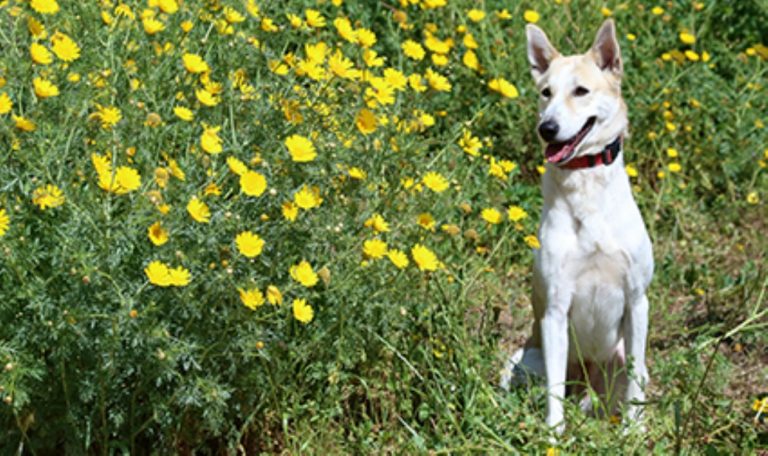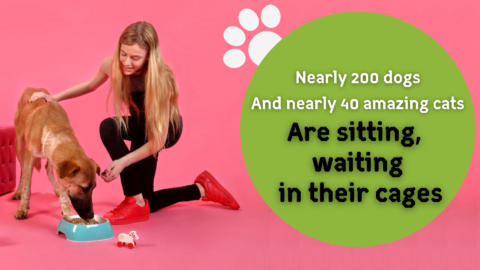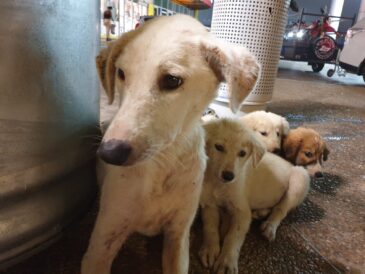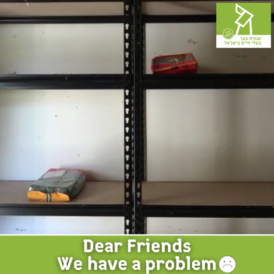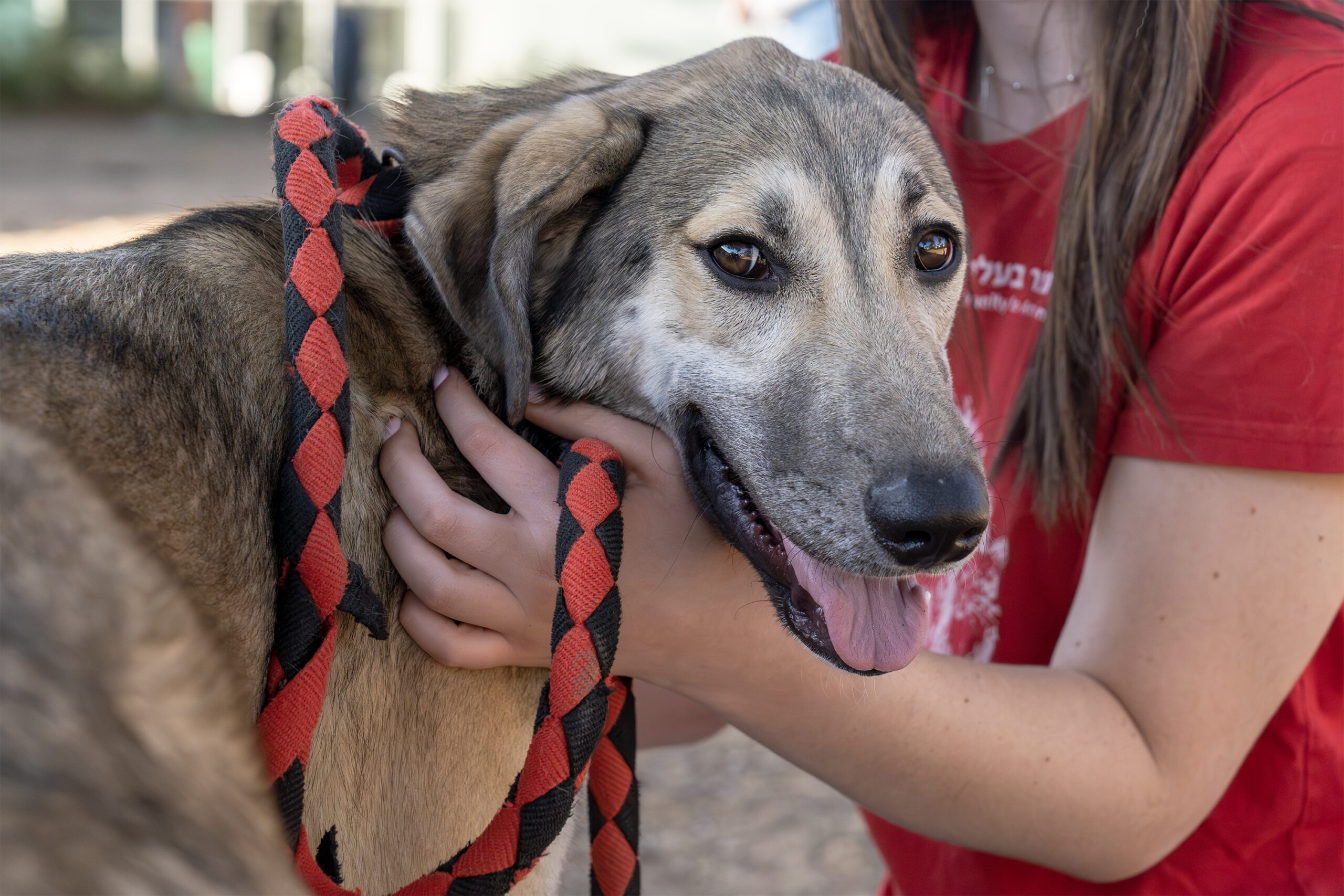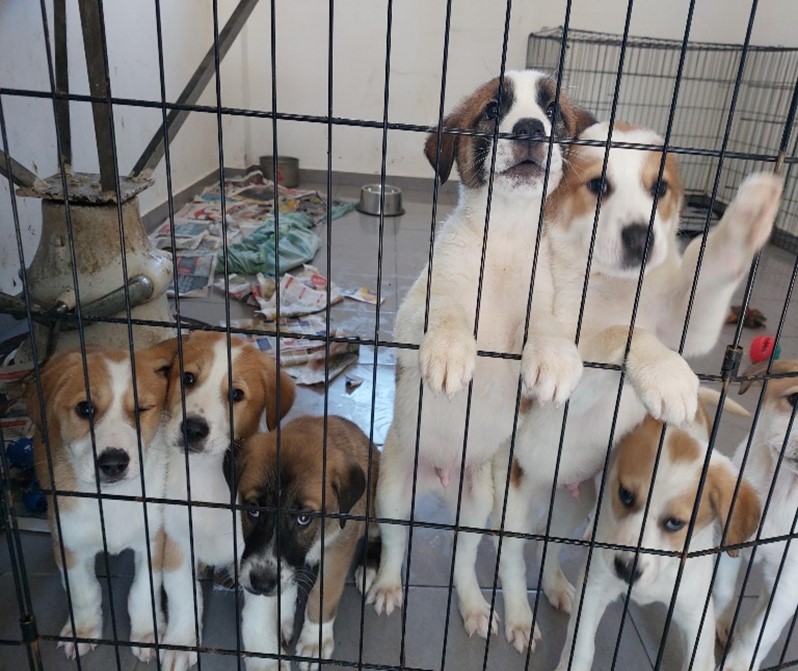For our Newsletter click here.
Greetings from the Chairwoman, Pesach 2015
Dear Friends,
Each year, as the Spring Festival approaches, I am happy to present our traditional newsletter. This year we wish to honor those families rearing animals they consider an integral part of their families.
Allow me to open with a personal reminiscence: Close to the Pesach holiday nine years ago, a weak and skinny puppy reached the Society, having been found by a passerby in the trash. Just one glance sufficed for me to fall in love with the tiny pup, only the size of my hand, and to name her “Baby”. Baby quickly acclimatized in our home, taking her place beside her ‘brothers’ and ‘sisters’, the cats and dogs. Since then and to this day she shares the path of life with us, lovingly and faithfully accompanying us with her friendly nature and understanding expression.
Our many years of experience in placing animals in adoptive homes teach us that not all dogs and cats have similar fates, with many of them never having the privilege of living their whole lives in one home. In the SPCA, as in other organizations, this season in the year is distinguished by two familiar phenomena: On one hand, for various reasons many dogs and cats are abandoned during the holidays, often after these animals have accompanied their owners for long periods of time and have filled a significant role in their lives. Joining them are the huge numbers of kittens that are born in the Spring to homeless cats and un-spayed house cats, resulting in the shelters being packed with animals begging for adoptive homes. We, of course, take in every animal brought to us, and encourage pet owners who are taking vacations at this time to use our boarding facilities while they are away.
The second phenomenon is adoption of dogs and cats by families who choose a new four-legged friend during the Pesach vacation. It appears to be an ideal situation – with the animals getting more attention due to the free time available. However, when the children go back to school, many animals that were adopted during the vacation are brought back to the shelters, since the kids’ enthusiasm fades and the burden of caring for the pets falls on the parents.
Every adoption is, needless to say, welcomed. However, it is important that the process be carried out in a responsible manner and not in a moment of enthusiasm or to fulfill the children’s wishes. The adopters must understand that the meaning of adoption is the adding of a new member to the family, an additional ‘child’ that demands attention, care and commitment for the fifteen years ahead.
In order to avoid this emotional upset both to the adopters and the animals, that may experience another traumatic abandonment, we in the SPCA operate an orderly process named “Responsible Adoption”. The aim of this process is to match the animals with the adopters, taking into account the wishes and life-style of the adopters and their ability to provide the animals with all their needs for their entire lifespan, a process which includes completing a special Adoption Form, meeting with an adoption counselor, a veterinary examination, vaccinations, spaying or castration and guidance in all matters concerned with pet care.
If you are considering adopting a pet, have the whole family take part in the process. We recommend encouraging the children to gather information about the animals and to learn about its needs and, at a later stage, to set up a division of tasks relating to the care of the animal. This will give the children a sense of responsibility, partnership and devotion. However, it is important to remember that expecting young children to undertake the full care of the animals is unrealistic, and that, in the final analysis, the responsibility rests on the parents’ shoulders.
I wish you and your families a happy spring holiday. Hopefully all the many dogs and cats will find suitable homes during the festival.
Chag Sameach,
Hilma Shmoshkovitz
Chairperson (Volunteer)
Society for Prevention of Cruelty to Animals in Israel
For our Newsletter click here.

